Alexandre Deschapelles - Champion Soldier
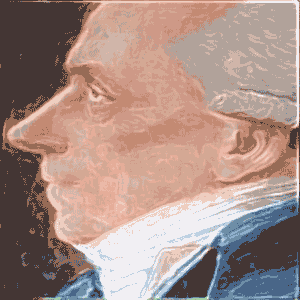
Alexandre Deschapelles
His family emigrated during the French Revolution but Deschapelles remained in France and fought for the Republican army. He lost a hand and had his face slashed during one of his many battles throughout this turbulent period.
Afterwards he made his living through chess, emerging shortly after the time of Philidor, and other games along with his tobacco and melon businesses. All in all he lived quite an adventure.
Young Alexandre
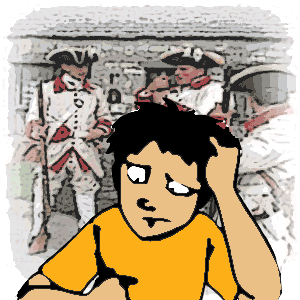
Alexandre Deschapelles went to a military academy as a boy
He was sent to the military academy in Brienne with this in mind. Events however were to alter the path of Alexandre's life and the lives of everyone of France. Trouble had been brewing since long before he was born.
Tensions between the elites and the commoners were simmering and the conflict would explode into life during the formative years of Deschapelles.
Revolution in the Air
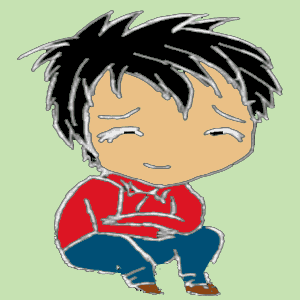
The family of Alexandre Deschapelles fled France leaving him behind
Alexandre's entire family had moved to Germany leaving him in Brienne. He would have been about 14 years old. He would have to decide where he fitted into the newly emerging French Republic.
Even though he was from the aristocracy he allied himself to the Revolution. A certain amount of the nobility did this. Some perhaps due to self preservation but later events would show that Deschapelles genuinely believed in the ideals of the Revolution. He went straight from the academy into the army.
Battle of Ettlingen
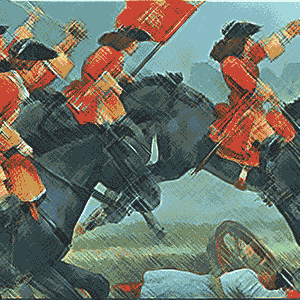
Alexandre Deschapelles suffers serious injuries in combat for France
England, Prussia and Austria joined forces in an attempt to defeat the Revolutionaries and return the Bourbon Dynasty to the throne. Deschapelles took part in many famous battles during this period such as the Seige of Mainz.
It was in another one of these, the Battle of Ettlingen, where he would be badly injured. He was fighting against the Prussians when an enemy soldier severed his right hand. His sword fell leaving him defenseless against the second blow which slashed his face from ear to chin. He fell to the ground, apparently slain. The enemy cavalry then proceeded to trample him.
But somehow he survived these terrible injuries. His days on the battlefield were over and at 16 years of age he was transferred to the administrative wing of the army.
A Walk in the Palais Royal
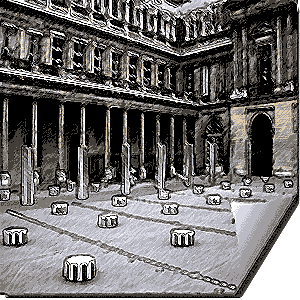
Alexandre Deschapelles discovered chess on the Palais Royal
He asked the Maître d'Hôtel what this game was and learned that they were playing chess. He ordered a drink and sat down to watch them play. After seeing a few games he not only absorbed the rules but according to himself, formed ideas for a winning system.
He played a couple of games and demanded a match with the resident champion of the cafe, none other than Bernard, a former pupil of Philidor and one of the greatest players in France. Stakes were agreed and on his first night as a chess player he played the great Bernard.
Tussle with Bernard

Bernard was a strong master and the House Champion at the cafe
They sat down to play and things did not go to plan. Bernard won the game and the match stakes but Deschapelles was not one to eat humble pie. He demanded a rematch and kept playing Bernard over those next days.
On the second day Bernard won again after a hard fight. And so they agreed to play again. On the third day Bernard prevailed once more. Deschapelles offered more stake money and Bernard agreed to play for the fourth consecutive day.
Champion in Four Days
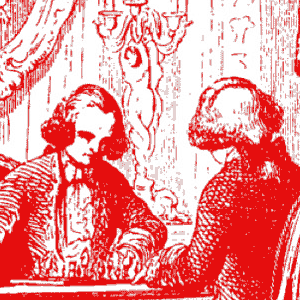
Alexandre Deschapelles challenged and defeated the great Bernard within four days of learning the rules of the game
After that he would rarely agree to play anyone even-handed. It became his trademark to offer his opponents odds. He became very well known for playing pawn and 2 moves.
He said later of his four day journey from newcomer to master: I acquired chess in the presence of fifty amateurs, in four days! I learned the moves, played with Bernard, who had succeeded Philidor as the sovereign of the board; lost the first day, the second, the third, and beat him even-handed on the fourth; since which time I have never advanced or receded.
Twenty Years at the Summit
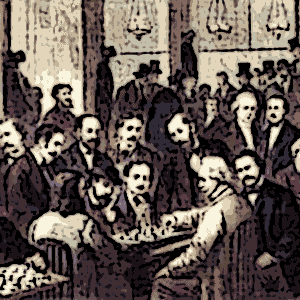
Alexandre Deschapelles held court at the Café de la Régence for 20 years
There he enjoyed such an advantage in strength over all of his contemporaries that he never played even. He played pawn and move or even pawn and two moves against even his strongest adversaries.
He made his living playing for stakes in this way. While he never made a fortune, he covered his expenses. He was also able to make money by giving chess lessons to students. One day a man walked in to the cafe who would become his most famous protege.
Arrival of La Bourdonnais

Alexandre Deschapelles trained La Bourdonnais in the game of chess
They also came willing to trade silver for his chess secrets. He took patzers and promising amateurs alike as his students. Out of the blue, in walked a man by the name of Louis-Charles Mahe De La Bourdonnais.
La Bourdonnais took up the game and quickly improved. After three years he equaled and surpassed Deschapelles in strength, beating him in match play in 1821. Deschapelles couldn't handle being second best and abandoned chess for other games. He became successful in several of these.
Excellence in other Games
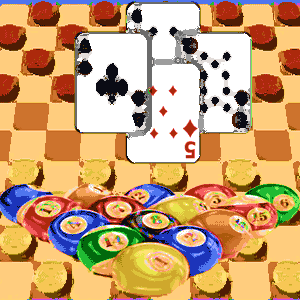
Alexandre Deschapelles abandoned chess and excelled at several other games
He also tried his hand at Polish Draughts, beating the French champion within a three months of learning the game. This game is somewhat similar to English Draughts or checkers.
Perhaps most surprising of all was his success at billiards. He had been without his right hand, which he favored, since the age of 16. He pushed the cue with the remainder of his right arm, using his left hand as the rest! He did not become champion but was recognized as a very good player.
The Former Champion's Brief Return

Alexandre Deschapelles made a brief return to the Café de la Régence
He walked into the Café de la Régence and sat down to play with his former understudy La Bourdonnais. He did okay winning at least some of the games.
Later he won matches against future World Champion Saint-Amant and the German master Wilhelm Schultz. Then it seemed he had satisfied his curiosity and he left the game for the final time.
Later Years
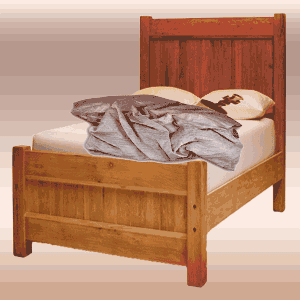
The French Chess King, Alexandre Deschapelles, was confined to bed at the end of his life
His success enabled him to pursue his interests whether that be in the various games he played or in politics. He sought a prominent position in Republican circles but others did not share his vision for this elevation. His political ambitions came to nothing.
Sickness confined him to bed for the final two years of his life. He asked to be buried without any public mention of his death or fanfare. He also requested a pauper's grave.
Legacy of Deschapelles
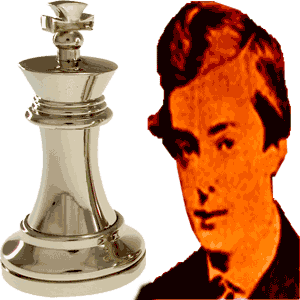
Alexandre Deschapelles believed that chess is a single idea
He generally only played odds games which naturally would unfold in openings not frequently seen in regular games. Apparently he never studied openings anyway and would as a result often reach the middlegame with an inferior position only to overpower most of his opponents in this phase.
His thoughts on chess were as follows: Chess to me has been, and is, a single idea, which, once acquired, cannot be displaced from its throne, while the intellect remains unimpaired by sickness or age.
Moving On
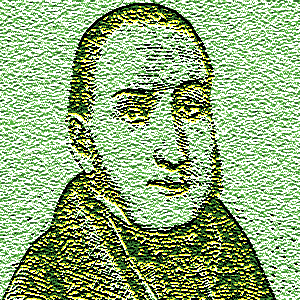
Louis-Charles Mahe De La Bourdonnais
This explained the peculiar fact that while England had far more second rate players (talented players, but below the champions), France was still producing more first rate players (the champions).
This would only hold for so long before organization overtook art. First Deschapelles would lose his crown to his student Louis-Charles Mahe de La Bourdonnais.






